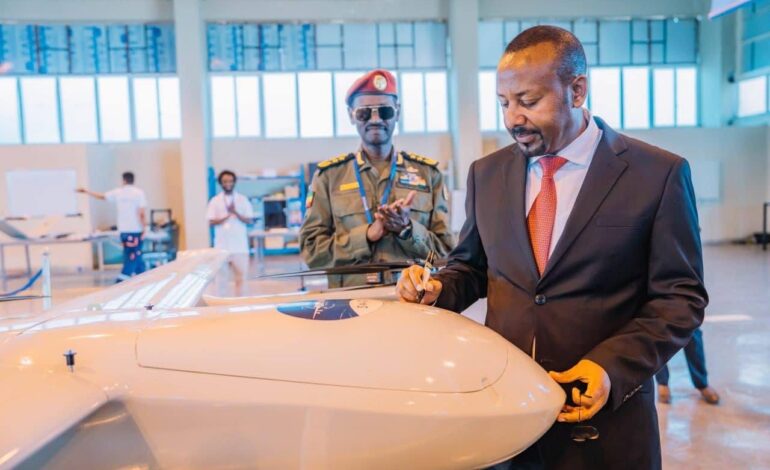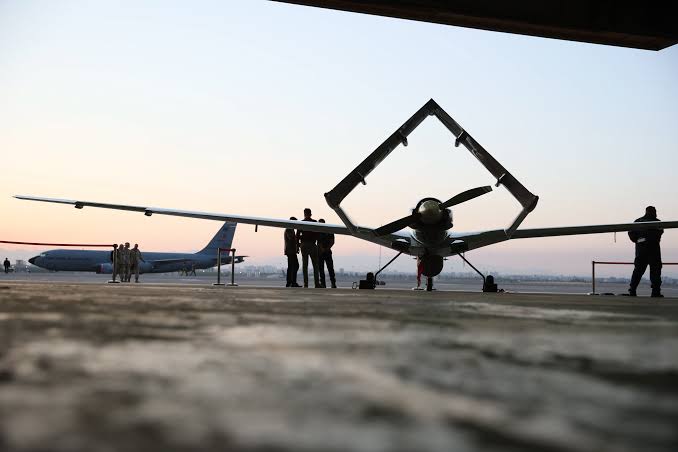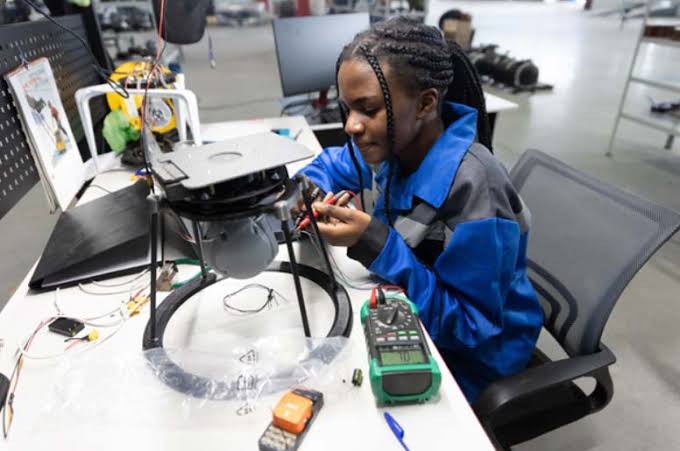
Faith Nyasuguta
In a bold move toward technological sovereignty, Ethiopia and Nigeria are forging a groundbreaking partnership to develop African-made drones for both civilian and military applications. This collaboration brings together Ethiopia’s newly launched aerospace manufacturing engine, SkyWin Aeronautics Industries, and Nigeria’s growing expertise in drone development – a synergy poised to reshape the continent’s defense and innovation landscape.
Ethiopia’s UAV ambitions took a defining leap forward in March 2025, when Prime Minister Abiy Ahmed inaugurated the state-owned SkyWin Aeronautics Industries. Located in Addis Ababa, the facility is designed to build drones for surveillance, high-altitude missions, intelligence gathering, and defensive operations using artificial intelligence and intelligent countermeasure systems.
Crafted by young Ethiopian professionals, these drones symbolize an essential step toward cutting reliance on foreign imports and reinforcing the nation’s autonomy and technological capability. The Prime Minister emphasized that these advancements aim not to fuel conflict, but to deter it – bolstering peace and stability amid a volatile regional landscape.

Meanwhile, Nigeria, long a leader in West African drone development, brings noteworthy operational milestones to the table. Its homegrown Tsaigumi UAV, designed in partnership with foreign firms, has been deployed for various tasks including surveillance, search-and-rescue, and maritime patrols. More recently, Nigeria has developed and tested armed drones like the hexacopter and kamikaze-style systems, showcasing its evolving technical prowess.
The seeds of collaboration were planted during a July 2025 visit by a high-level Nigerian Air Force delegation to Ethiopia. Air Commodore Ali Hussaini Idris led this delegation, touring key Ethiopian aviation facilities including the FDRE Air Force Headquarters, the Aviation Depot Maintenance Centre, and the Air Force Academy. The two air forces agreed on shared training programs, joint technical research, and the development of an indigenous African UAV, uniquely designed for the continent’s needs.
Nigerian commanders will soon host Ethiopian counterparts in training at the Air Warfare and Doctrine Centre and the Air War College, expanding cross-border knowledge exchange.

This emerging partnership addresses two pressing continental realities. For Ethiopia, SkyWin signals a broader commitment to export-ready drone production and advanced sensor development – a direct response to past dependence on drone imports from countries like China, Iran and Turkey. Nigeria, driven by regional security challenges and a vision for domestic manufacturing, demonstrates that homegrown defense innovation can be both feasible and effective.
By working together, Ethiopia and Nigeria aim not only to reduce import dependence but to propel Africa toward deeper self-reliance in aerospace innovation. Their collaboration signals a shift from fragmented and duplicated efforts to collective capacity-building – where resources, talent and strategic know-how are pooled for mutual advancement.
Of particular note is how this venture aligns with recent calls from the continent’s military leadership – echoed at forums such as Africa’s Chiefs of Defense Conference -for a robust indigenous defense manufacturing base. This coordinated drone initiative exemplifies how nations can pursue such ambition through cooperation rather than isolation.

Looking ahead, if Ethiopia and Nigeria successfully co-develop a fully African UAV, its impacts could extend far beyond military surveillance. Civilian applications – ranging from agricultural monitoring and disaster response to environmental surveillance – stand to benefit greatly. And beyond the machines themselves, the ripple effects in job creation, research, and training could mark a turning point for technological growth across Africa.
To be sure, challenges remain: securing investment, aligning technical capacities, and scaling production will require sustained commitment. But the determination already shown – culminating in Ethiopia’s impressive manufacturing leap and Nigeria’s drone design achievements – suggests that African aerospace innovation is no longer a dream, but an unfolding reality.
RELATED:








